The govt stake in development of RMG, textile sector
The government of Bangladesh, immediately after the Tazreen fire incident and the tragic collapse of Rana Plaza, took various steps towards improving overall workplace safety in the ready-made garment (RMG) and textile sector as well as making commitments to the international community, which include adoption of a National Tripartite Plan of Action by the constituents, implementation of the Sustainability Compact, and the US Action Plan focussing on legislation and policy reform, administration and practical actions.
Here is a brief summary of some steps recently initiated by the government:
- Amendment to Labour Law: The Bangladesh Labour Act, 2006 was amended on July 16, 2013 to ensure workers’ safety, welfare and rights and promote trade unionism and collective bargaining. In line with this, the National Occupational Health and Safety Policy was adopted by the government in 2013.
- Trade union registration: After amendment to the Labour Act-2006, the overall situation of trade union registration in the RMG sector gained momentum. ILO started training programme for the office-bearers of newly-formed unions.
- Formulation of rules: The rules were published in an official gazette on September 15, 2015.
- Upgradation of DIFE: The government, through an accelerated process, upgraded the Directorate of Inspection for Factories & Establishments (DIFE) to a full-fledged Department.
- Labour Inspectors’ training: After upgrading the DIFE, the government with the support of ILO and other development partners arranged different trainings for the Inspectors.
- Publicly accessible database: The DIFE, with support of ILO, developed a publicly accessible database (http://database.dife.gov.bd/) of 3,746 export-oriented RMG factories on March 30, 2014. The database contains information of all export-oriented RMG factories including names and addresses, number of workers etc. It also includes summary of safety assessment reports on factories, reviewed by Accord, Alliance, and the National Initiative.
- Hotline (helpline): With the Department of Inspection for Factories & Establishments, a helpline, on a pilot basis, was established in the RMG-centred area at Ashulia on March 15, 2015. The number of the helpline is 0800-4455000.
- Minimum wages: The government declared the minimum wages for the workers of the readymade garments industry with an increase of 77 per cent from the previous one. It has been implemented since December 01, 2013. Now the garments workers’ minimum wage is Tk 5,300, which is about US$ 68 per month.
- Inspection plan and inspection policy: Annual inspection plan for 2015 for the DIFE has been developed and formulation of an inspection policy is underway.
- Regular inspections: Guided by the Labour Act-2006, regular inspections are being carried out by the inspectors of DIFE. Enforcement of the law is ensured through regular inspections. In case of non-compliance, the factory owners are served notices to rectify and cases are filed against the factory owners for failure to rectify.
- Tripartite national plan of action: A Tripartite National Plan of Action on Fire Safety and Structural Integrity in the RMG Sector was adopted with the assistance of the ILO (International Labour Organisation). In line with the Plan of Action, the ILO has been implementing a $24.5 million project under the Ministry of Labour & Employment.
- Assessment of structural, fire and electrical integrity: With the assistance of ILO and under the supervision of National Tripartite Committee (NTC), a plan for assessment of building, fire and electrical safety of all 3,685 active export-oriented RMG factories has been developed. A Common Standard has been developed for assessment of fire, electrical and building safety of the factories by all initiatives such as National Tripartite Plan of Action for Fire and Structural Integrity (NTPA); the Bangladesh Accord on Fire and Building Safety; and Alliance for Bangladesh Worker Safety.
Assessment reports have been sent to concerned factories for implementation of detailed engineering assessment and to the district offices of DIFE for close monitoring and supervision. All the factories have started remediation according to the recommendation of assessing authorities. In this regard, the DIFE has started monitoring those remedial measures taken by factory owners. Two taskforces are working to implement the remedial measures taken by the factory owners.
- Better work programme: Implementation of the Better Work Programme in the RMG sector was launched on January 22, 2013 by the ILO. About 300 factories are expected to participate in the programme.
- Strengthening of the Ministry and the Department of Labour: The strength of the Ministry of Labour and Employment has been enhanced by creation of new posts and upgradation of the Directorate of Labour to a Department.
- Training activities by Directorate of Labour: Under a project, training programmes were conducted for the workers, trade union leaders and employers for capacity building of trade union representatives and employers’ organisations as well as promoting effective labour-management relations.
Other activities by the government and other relevant stakeholders:
- Sustainability Compact: Bangladesh, European Union, United States of America and International Labour Organisation jointly adopted the ‘Sustainability Compact’ with a view to taking joint initiatives to improve labour welfare and work place safety in the RMG sector.
- Bangladesh Action Plan: Bangladesh Action Plan 2013 was proposed by the USA to improve building and fire safety and working environment. The ILO, development partners and the foreign buyers have jointly taken various initiatives.
- Tripartite Standing Committee: A tripartite standing committee, headed by the Secretary, Ministry of Commerce, to provide all-out support to the Cabinet Committee on Garments Industry was also formed.
- 3+5 Committee: Three secretaries of Commerce Ministry, Labour Ministry and Foreign Ministry and five ambassadors/ high commissioners of the USA, Canada, EU, UK and the Netherlands constituted the 3+5 Committee. The committee holds regular meetings to assess the progress of the government’s commitment towards improving working conditions and labour welfare in Bangladesh.
- Garments Village: A committee, headed by a Director General of the Prime Minister’s Office, is functioning to establish a ‘Garments Village’ on 530 acres of land at Baushia under Gajaria Upazilla in Munshiganj district.
- Capacity building of Department of Fire Service & Civil Defence: The Ministry of Home Affairs has approved a proposal for establishing new fire stations. The number of inspectors was also increased in the Department of Fire Service and Civil Defence.
- Increase in number of RAJUK and CDA Inspectors: The numbers of inspectors at the Rajdhani Unnayan Kartipakshya (RAJUK) and Chittagong Development Authority (CDA) have been increased.
- Tax & duty reduction: A minimum rate of tax was settled by the government regarding the import of fire extinguishing equipment. It also made a provision for duty-free import of prefabricated building materials, fire-resistant doors, sprinkler system and equipment, emergency lights with exit signs etc.
- Housing loan: A Memorandum of Understanding has been signed between Housing Fund of Bangladesh Bank and the BGMEA to provide loans at the interest rate of 02 per cent from the fund to the owners of the RMG factories for construction of dormitories for their workers.
Mikail Shipar is Senior Secretary, Ministry of Labour & Employment, Bangladesh government
Ministry of Labour & Employment, Bangladesh government


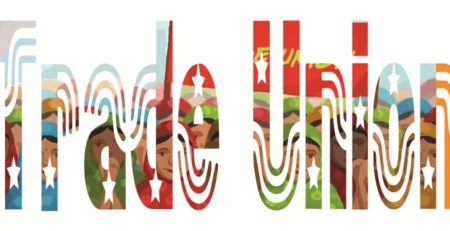
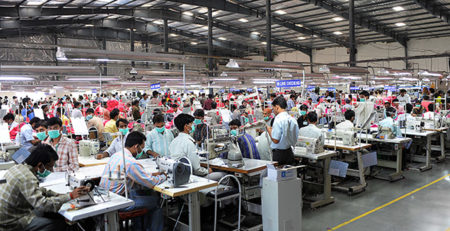

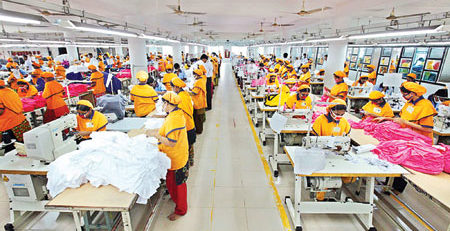

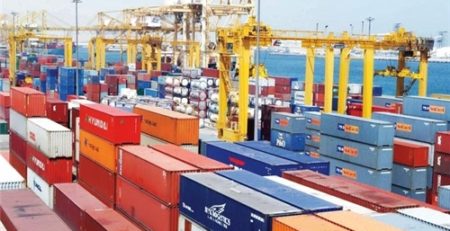

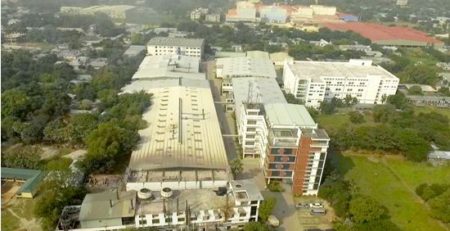

Leave a Reply